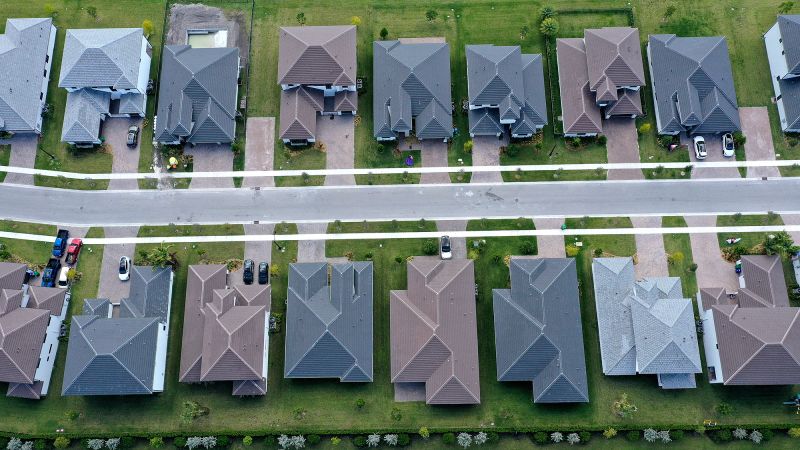Buying a family-sized home with three or more bedrooms used to be manageable for young people with children. But with home prices climbing faster than wages, mortgage rates still close to 23-year highs and a shortage of homes nationwide, many Millennials with kids can’t afford it. And Gen Z adults with kids? Even harder.
Meanwhile, Baby Boomers are staying in their larger homes for longer, preferring to age in place and stay active in a neighborhood that’s familiar to them. And even if they sold, where would they go? There is a shortage of smaller homes in those neighborhoods.
As a result, empty-nest Baby Boomers own 28% of large homes — and Milliennials with kids own just 14%, according to a Redfin analysis released Tuesday. Gen Z families own just 0.3% of homes with three bedrooms or more.



This is a fucking bullshit article. Between Airbnb and filthy scum investment companies buying up homes to rent, actual owners are nowhere near the biggest problem
Stop upvoting shit like this. CNN = Clearly Not News
In support of your argument.
Report: 44% of all Single-Family Home Purchases were from Private Investors in 2023
edit: see corrections below
If you click through to the Business Insider article you can see that it’s a misquote. Private investors accounted for 44% of the flips in 2023, not 44% of all single family home purchases total. That’s still a problem, but it’s a huuuuuge difference. Flips are a small minority of home sales.
Thanks for the correction. I remembered seeing that number but didn’t analyze it in any depth. A more detailed analysis of the market, by Freddie Mac, concluded that there were four main drivers for the recent surge in prices, and investors weren’t on the list.
Institutional investors apparently even reduced their purchases in 23 - some of them were even net sellers - because of prices and interest rates. That doesn’t mean they aren’t still villians in this scenario. I don’t think big investors should own single family homes at all. But still they aren’t as big a force as my previous comment indicated.
Fucking hell that’s shocking
It’s not even close to true. Here’s an article about it
Not only are corporations buying up houses to rent, they’re actively preventing new houses for purchase from being built through “build to rent” schemes. They use the already scarce construction resources and divert them to building housing with the sole intention of renting them out.
So they’re keeping the supply houses available to own down, and then preventing new supply from being created. It’s a giant fuck you from corporations and shitty local government for letting it happen.